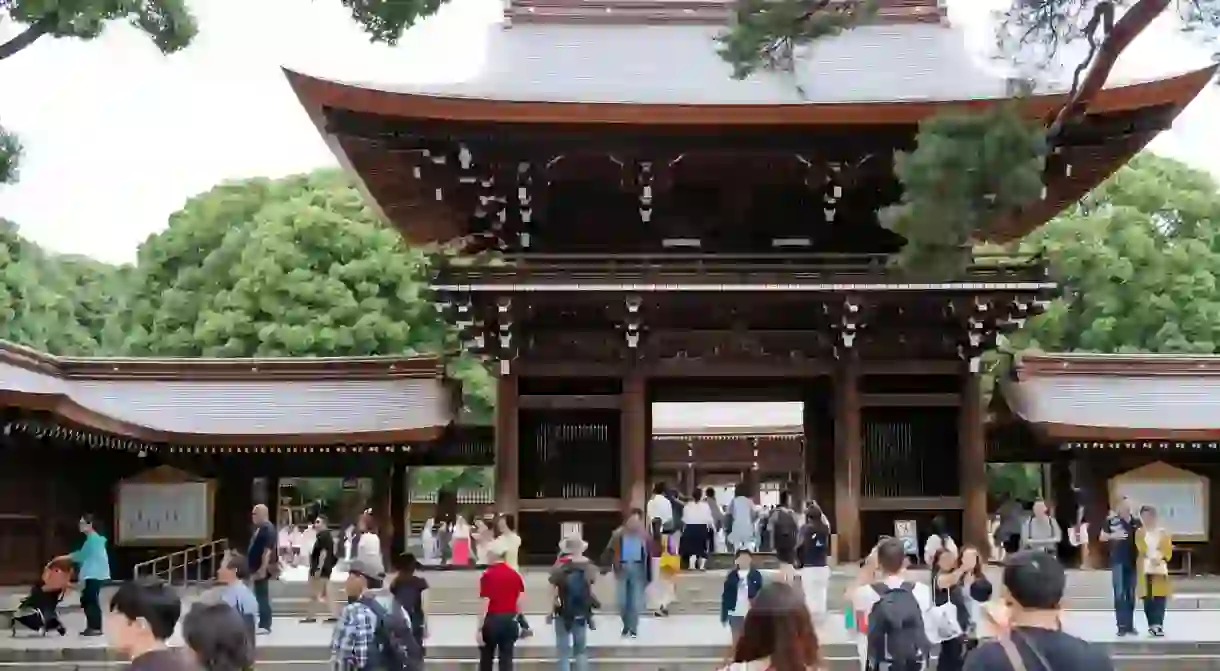8 Reasons Why You Should Explore Tokyo’s Shibuya Neighbourhood

Tokyo’s Shibuya district is full of fascinating nooks and crannies just waiting to be explored. Widely considered the beating heart of the capital, the energy here is infectious; you won’t ever be too tired to move right on to the next. These are Culture Trip’s top eight reasons to dive into buzzing Shibuya.
The world-famous Shibuya Crossing

The Shibuya Crossing is a Tokyo icon and a perfect starting point to this bustling neighbourhood. Located just outside Shibuya Station, this pedestrian scramble sees more foot traffic than any other crossing on the planet – approximately 2,500 people cross at a time. Take part in the charge, or sit back and watch from one of the many cafés and restaurants surrounding the area.

Tokyo’s fashion capital

Shibuya is widely considered the centre of mainstream youth culture and fashion in Tokyo. Shoppers can find almost anything here, from kimono and high-end Western styles to local street and luxury brands, making Shibuya the place to stock your closet. This is especially true if you include the entire ward – adding Harajuku, Omotesando and Aoyama to your list.
The legend of Hachiko

The bronze memorial of Hachiko, the dog whose loyalty to his owner inspired the nation, has become an unofficial meeting place for friends coming together in Shibuya. Hachiko’s true story has touched many hearts; his owner passed away at work from a brain haemorrhage, unbeknownst to Hachiko who waited 10 years at Shibuya Station, until his death, for his master to come home. As a result of this tale, the statue has become one of Tokyo’s most popular tourist photo ops. There are a couple of other Hachiko statues scattered around the ward, so keep an eye out during your wanderings and see if you can spot them.
A vibrant music scene
Compared to the area’s other famous features, Shibuya’s music scene is unjustly underappreciated by visitors – but that makes it all the more worth exploring. The area around Shibuya Station is home to countless live houses and DJ bars. Udagawacho, in particular, is home to a famous live music complex, where multiple venues from nightclubs to karaoke bars are stacked on top of one another.
Meiji Shrine

Shibuya Ward’s Meiji Shrine is officially the most-visited shrine in Tokyo. The glorious approach to the shrine is carved out of Yoyogi Park itself; within minutes, shrine-goers are transported from the busy streets of Harajuku, Omotesando and Shibuya to an ancient forest.

Thriving Otaku culture

Akihabara isn’t the only place in Tokyo to get your game face on. Shibuya is home to 24-hour manga cafés, a Village Vanguard, a Mandarake outpost and more arcades than you can count. There’s even a butler café almost completely staffed by foreigners.
Love Hotel Hill

Shibuya’s Dogenzaka, just minutes from Shibuya Station, is famous for its high concentration of ‘love hotels’. These are establishments catering to couples who need a little privacy; guests can stay for a two-hour “rest” up to a 12-hour “stay”. Explore Love Hotel Hill and see if you can find the perfect place to feel the romance in the air.

Electric nightlife

By day, Shibuya is a shopper’s paradise. By night, the city’s youth come out to play. There’s something to suit anyone in this pulsating district, from cramped Shōwa-era bars and friendly izakaya to live houses and clubs that stay open almost until the trains start running again at 6am.













